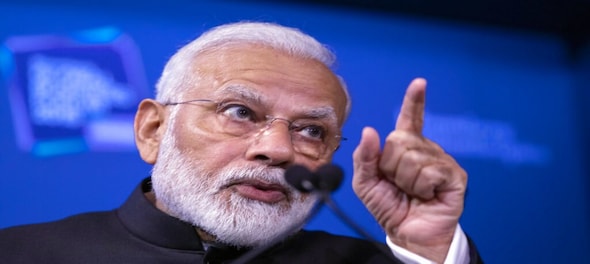
The Prime Minister’s call not to vilify businessmen has been received as a welcome break from the past. Just a day later, renowned management expert Ram Charan, who is guru to many top-class CEOs like Jack Welsh, spoke at our “India Risk Management Awards” and said that India’s risk premium is high because foreigners look at the way India doesn’t allow return on the cost of capital in key sectors like power, telecom, airlines and some others.
This note argues that:
The charge that businesses are vilified in India is a misrepresentation. Indian civilization historically and the modern Indian nation-state have both been pro-entrepreneurs. The Gujarati and Marwari communities and likewise the Reddys and Kammas of Andhra or the Chettiars of Tamil Nadu have all been admired through the ages for their business acumen. Cut to modern India, the house of Tatas has often been honoured for pioneering many businesses in India. Indian news media have repeatedly fallen over each other to give awards to scions from traditional business families like Birlas, Ambanis, Mittals and Bajajs .
Technocrat-entrepreneurs like Narayan Murthy, Nandan Nilekani, Azim Premji, Deepak Parekh, Uday Kotak, Aditya Puri are all revered icons, second only to cricketers. Indeed as Morgan Stanley EM strategist Ruchir Sharma writes, the construction of a palatial building like Antilla in the heart of Mumbai is in sharp contrast to Mexican businessmen who normally build their homes outside the city behind barbed wires and travel after dark with a bevy of bodyguards.
Indeed I have hardly come across businessmen in India who complain of vilification. Rather, as Dr Charan says businessmen complain that politicians, bureaucrats and judges don’t ensure the sanctity of contracts on which they base their calculations of the cost of and return on capital.
Let us take the three sectors that Dr Charan referred to. First, power. Earlier this month Gujarat’s state-owned power distributor, GUVNL, summarily cancelled a solar power contract signed last year with ReNew Power, Tata Power and few others, for Rs 2.78 per unit, only because this year it could get a project signed for Rs 1.99 per unit. Such going back on contracts is unfair because companies would have already raised loans and equity assuming a certain return and hence the entire chain of lenders and investors can be out of pocket. This is hardly the first such instance.
Two years ago it was the state of Andhra and before that UP. The bigger problem power generating companies have faced for the past 2 decades is huge over dues from discoms. Most state discoms are deep in the red due to high power thefts or because state governments who subsidise the power don’t pay the subsidy amount on time. Power companies in India are victims of serial defaults in law enforcement.
Likewise telecom. Indian bureaucrats, public auditors like the CAG and finance ministries start on the assumption that natural resources like spectrum should be charged a back-breaking price for the good of the nation. Several countries like the US give spectrum free so that businesses flourish and the country is able to earn taxes due to higher growth. To be sure there was corruption afoot in the issue of the 2G spectrum. But the handling of the case resulted in wiping out all but 3 companies and in over one lakh crore of bad loans to banks and it is this shabby legal-political process that scares businesses and adds to the India risk premium.
Airlines tend to be tough businesses everywhere, but in India, with its high tariffs on ATF and equally punishing charges for landing, parking and ground handling imposed by Airports Authority make the business fragile if not unviable. Vijay Mallya has been vilified no end, but even his worst critics will agree he lost more of his personal wealth investing in Kingfisher Airline than he gained. That it is very tough to run an airline in India is proven by Jet and Indian Airlines flopping without any Mallya piloting them.
India is faring poorly in sectors that depend on the government. Hence the PM’s call to be pro-business needs to be taken most seriously by his own ministers and bureaucrats and by the judiciary. They need to ensure that policies are made and administered, as Dr Charan says, in such a way that businesses are allowed to earn a fair return on the cost of capital.
Finally, while we welcome the cry not to vilify business, it cannot mean turning a blind eye to policies benefitting cronies. Take for instance the production linked incentive (PLI) policy. It is based on choosing winners in every sector and subsidising them to become world-class. But the manner of choosing the winners must be fair and open to scrutiny. Encouraging business cannot mean vilifying those who demand fairness in the process.
Views are personal
(Edited by : Aditi Gautam)
First Published: Feb 14, 2021 6:47 PM IST
Check out our in-depth Market Coverage, Business News & get real-time Stock Market Updates on CNBC-TV18. Also, Watch our channels CNBC-TV18, CNBC Awaaz and CNBC Bajar Live on-the-go!


Prajwal Revanna Sexual Assault Case: Activist raises concerns over political interference, delayed investigation in the matter
Apr 30, 2024 10:17 PM
Lok Sabha Election 2024: Baramati election outcome will decide the future of Pawar dynasty, says expert
Apr 30, 2024 10:08 PM
Lok Sabha elections 2024: Baramati to Mainpuri, key battles in phase 3
Apr 30, 2024 7:01 PM

